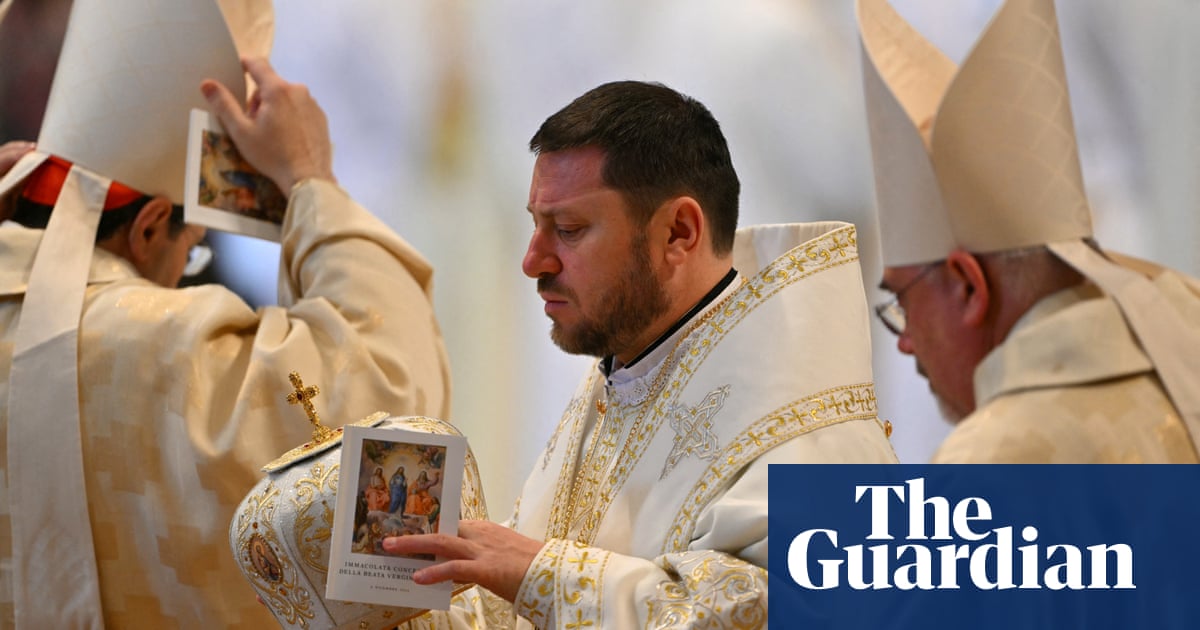A 45-year-old Ukrainian-bornMelbournebishop will be among the world’s top-ranking Catholic officials who will vote to select the next pope.
Mykola Bychok is Australia’s highest ranking Catholic official, after the latePope Francismade him a cardinal late last year.
Cardinal Kevin Ferrell, the Vatican camerlengo,announced Pope Francis’s death on Monday eveningAustralian time. He was 88.
Bychok is the Catholic church’s youngest cardinal and the first Australian to be made cardinal since George Pell.
He is also just the eighth cardinal from Australia.
Bychok was born in the Ukrainian city of Ternopil, and entered a monastery after finishing high school, before becoming ordained as a priest in Lviv.
He served as a priest in countries including in Poland and the United States, before moving to Melbourne in January 2020 to serve as the Eparch of Saints Peter and Paul of Melbourne, a Ukrainian Greek Catholic church.
“He felt a calling to follow Christ at the age of 15, when he was in 9th grade,” a biography on his church’s website said.
As a cardinal under the age of 80, Bychok will be one of the select few Catholic leaders who will gather in the Vatican in the coming weeks to vote in the papal conclave to choose the next pope.
Pope Francis installed Bychok as a cardinal over other well-known Catholic leaders in Australia, such as the Archbishop of Sydney, Anthony Fisher and his Melbourne counterpart, Peter Comensoli.
At a ceremony at the Vatican in December when he was installed as a cardinal, Bychok said Pope Francis spoke to him in Ukrainian when telling him “glory be to Jesus Christ”.
“It was very a great moment for me, of support,” Bychok told the ABC.
His installation as cardinal was celebrated by Catholics both in Australia and Ukraine.
Bychok has spoken out about the plight of his native Ukraine since Russia’s 2022 invasion.
“It is really a genocide of our people because Russia is in war mode, with army, with soldiers, and they are killing our people,” he told the ABC.
In an Easter letter sent to congregants last week, Bychok urged Catholics who find themselves “in a world that often feels overwhelmed by uncertainty, suffering and division” to seek comfort from God.
“We cannot celebrate [Easter] this year without turning our thoughts and prayers to our suffering homeland of Ukraine. The war continues to bring devastation, pain, and heartbreak,” he wrote.
“Yet even here, in the shadow of the cross, we cling to the promise of the empty tomb. We live in hope that this unjust aggression will be brought to an end, and that a just and lasting peace will be established. As Pope Saint John Paul II once said, ‘Do not abandon yourselves to despair’.”
He called for this Easter to bring “a new beginning”.
“Let us rise with Christ in our hearts, ready to witness to the world that love is stronger than hate, that mercy is stronger than vengeance, and that life is stronger than death,” he said.
